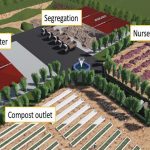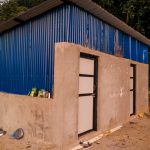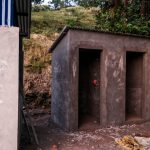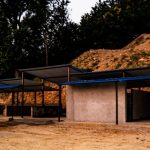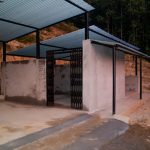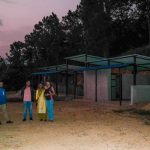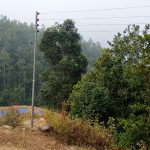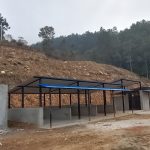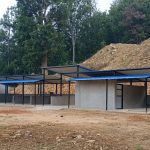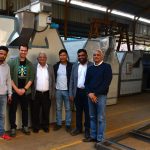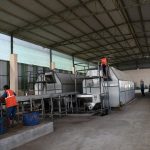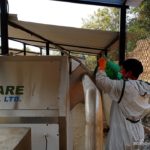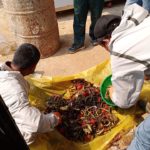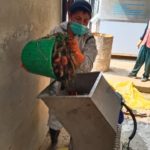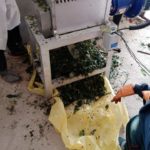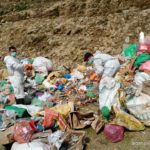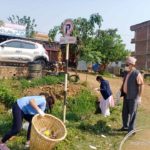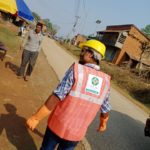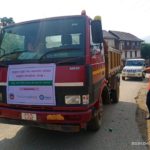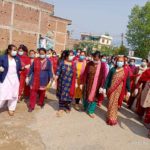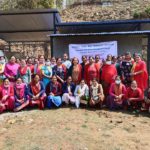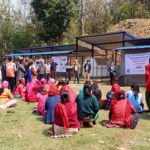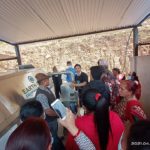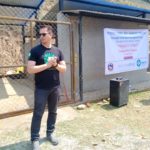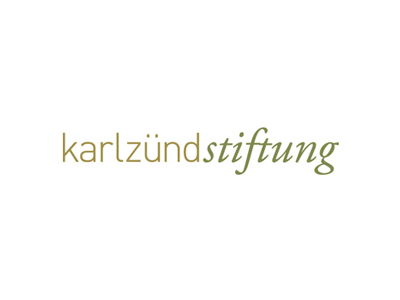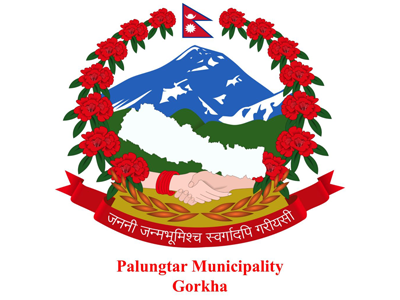Palungtar, Gorkha
SOLID WASTE MANAGEMENT

Place
Palungtar Municipality,
District Gorkha

Who
Implementation: Chay Ya Nepal,
Advisory Council: Palungtar Municipality

Partners
Karl-Zünd-Stiftung,
Palungtar Municipality

When
2019 - 2021

For
2,744 households, ca. 12,000 people

Status
Completed and in operation
Project
The solid waste treatment, disposal and recycling project is specifically designed to improve waste management in the small town of Palungtar. The current waste system consists of collecting waste from domestic, commercial or institutional facilities and subsequently “disposing” it in pits or landfills. This way, more and more land is polluted by the increasing population and the amount of steadily growing garbage. This, in turn, creates increased pressure on the local community administration to acquire new land, which is not only difficult to find but also difficult to finance. That is why the Nepalese government is very interested in finding a sustainable solution and will finance part of the project, as well as provide land and vehicles for a waste treatment plant.
Apart from the financial and local restrictions, the simple “hiding” of garbage or the accumulation in the area is a very polluting “solution” for the disposal of garbage. This project in Palungtar aims to introduce a more efficient and environmentally friendly system to the municipality, composting organic waste and recycling non-organic waste. At the same time, an awareness of waste recycling in the local population is to be created and disseminated through information material. The supporting group of the project is the existing women’s group in Palungtar, which is being trained by Chay Ya Nepal. After 18 months, the waste recycling plant will not only finance itself but will also generate income for at least 30 women by selling the compost (organic waste) and raw materials (inorganic waste) it produces.
The waste separation and recycling plant consists of a delivery or transfer station for the waste, separate areas for waste separation according to the material, a separate and lockable area where the composting plant, which converts organic waste into high-quality compost, is located, an electricity room, toilets for the workers and a large forecourt for trucks that transport the separated materials for recycling.
Updates
Update December 2018
The contract between the municipality of Palungtar and Chay Ya Nepal was signed on 16 November 2018. The municipality provides 7,500m² of land for the construction, as well as at least one tractor for the garbage recycling plant. On the 6th of December, a kick-off program with the interest groups, the local organizations and the elected representatives of the community took place. A total of 31 participants were present at the event, which communicated the aims of the project and drew attention to the growing waste problem.
Update June 2019
In order to raise awareness of the growing waste problem and environmental pollution, so-called Eco-Clubs were formed in 5 schools. The activities of these clubs include knowledge transfer in the schools themselves, cleaning and waste collection activities in the schools and an art competition.
On the 22nd of June, a joint clean-up campaign was launched in Thantipokhari (Palungtar), which will continue every Saturday.
On 5 June, World Environment Day, 250 pupils took part in a parade and competed in a speech contest on the subject of the environment and environmental pollution. We are happy that the awareness of the population is growing!
The project location has been determined, construction work has begun and the official process for the extension of the power lines has also been completed.
Update February 2020
The construction of the separation and transfer station is completed. The connection of the three-phase electrical line at the location of the transfer station has already been completed. An awareness campaign and other activities to preserve the environment in schools and communities are also underway. The composting plant for the organic waste, from which high-quality compost will ultimately be produced, has been ordered and will be delivered from India by the end of March 2020. Waste management activities such as waste collection, site separation and composting will start as soon as the machine arrives and is installed at the project site.


